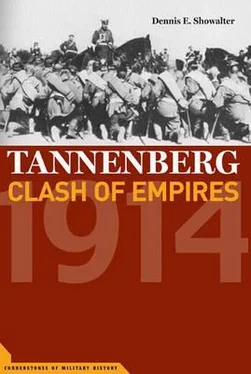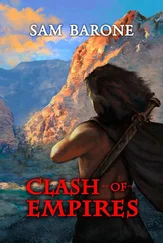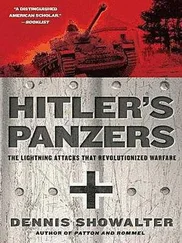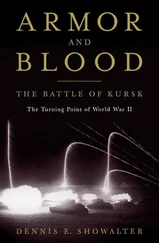This approach, the political science or crisis-management model, is balanced by an historical interpretation presenting World War I as the product of rational calculation. In this argument Imperial Germany is described as believing that a bid for continental hegemony and world empire had a good chance of success in the circumstances of 1914. Her behavior generated entente calculations that Germany must be stopped, and could be stopped at acceptable cost. The result was Clausewitzian: war became the continuance of policy by other means. 5
Neither of these interpretations has much room for “evil empires.” Where that role exists, it is almost universally assigned to Kaiser William’s Germany. Paul Schroeder has aptly pointed out that German foreign policy after Bismarck was dominated by a contradiction. Her vital interests on the continent were best served by preserving the status quo. Yet the dreams of Weltpolitik pursued by William II and his advisors increasingly led the Second Reich into adventures provoking challenges from her rivals and neighbors—challenges from which Germany, for all its warlike rhetoric, was frequently constrained to withdraw because of her own greater need for stability in Europe. 6This Weltpolitik in turn becomes a manifestation of Imperial Germany’s structural malaise. A defensive coalition of capitalists, landowners, and bureaucrats, more or less influenced by grassroots imperialists and militarist pressure groups, is presented as uniting in an uneasy compromise to preserve existing anomalous socio-economic relations by an outward projection of power, whatever the costs to Europe and the world. 7
Scholars who do not dismiss out of hand German fears for her geopolitical position as groundless smokescreens usually focus on Anglo-German relations. The British Empire is presented as Germany’s ultimate objective rival for wealth and status, with Germany cast in the role of the challenger—the aggressor. 8The Second Reich’s repeated claims of being faced with a formidable threat on the other side of the continent is usually dismissed. “Die russische Gefahr” becomes either a figment of generals’ and politicians’ imaginations, or a deliberate invention fostered even by the Weimar Republic as a means of denying Germany’s guilt for the outbreak of war in 1914. 9A government like Russia’s, which collapsed into revolution; an economy like Russia’s, in the early stages of development; a society like Russia’s, lacking in skills and sophistication, surely posed no real danger to the mighty German Empire. 10
This interpretation has a contemporary aspect as well. It reinforces a significant body of literature stressing the weaknesses and shortcomings of Soviet Russia, and attributing those deficiencies to long-term factors that deny eradication by any political system. Well before the political upheavals that began in 1989, German anxieties in 1914 invited comparison with those of the United States and the NATO alliance as the products of exaggeration, when not malice. The USSR inherited Tsarist Russia’s role as a more or less unwitting victim of her neighbors’ paranoia. 11
In such contexts the details of nineteenth-century Russo-German relations seem obsolescent—the stuff at best of doctoral dissertations likely to remain forever unpublished. Yet Germany’s Russian connections lay at the heart of Germany’s foreign policy prior to 1914 in a way wider and more fashionable issues did not. The Gorbachev era has generated increasing discussion of a Russo-German quid pro quo involving a partnership modernizing eastern Europe in return for Germany’s distancing herself from the Atlantic world. This hypothesis frequently incorporates an historical dimension alleging long-standing harmony between Russia and Germany—a harmony fostering willingness to stand together against a West whose values are essentially alien to both of them.
Tannenberg suggests an alternate set of possibilities by demonstrating the growth and flourishing of Russo-German antagonism over a significantly long period of time. It has been said that nations have neither eternal friends nor eternal enemies—only interests. Certainly in the half-century before 1914 the empires of tsar and kaiser developed interests whose conflict cannot be dismissed as the product of false consciousness or specific misjudgments.
The association of the two great eastern empires illustrates the growing complexity of power relationships in an industrial, technological era that made international relations increasingly an affair of everyman, everyday. Tannenberg was in good part a product of increased anxieties and diminished alternatives. In particular, an evaluation of perceptions and realities as they developed in Berlin suggests that Germany’s decision for war in 1914 was undertaken in a far more negative context than conventional academic and popular wisdom accept. It is with that development that our story begins.
Outline Order of Battle German 8th Army
I CORPS
1st Infantry Division
1st Brigade—1st Grenadiers, 41st Infantry
2nd Brigade—3rd Grenadiers, 43rd Infantry
1st Field Artillery Brigade—16th, 52nd Field Artillery 8th Uhlans
2nd Infantry Division
3rd Brigade—4th Grenadiers, 44th Infantry
4th Brigade—33rd Fusiliers, 45th Infantry
2nd Field Artillery Brigade—1st, 37th Field Artillery 10th Jäger zu Pferde
XVII CORPS
35th Infantry Division
70th Brigade—21st, 61st Infantry
87th Brigade—174th, 176th Infantry
35th Field Artillery Brigade—36th, 72nd Field Artillery 4th Jäger zu Pferde
36th Infantry Division
69th Brigade—129th, 175th Infantry
71st Brigade—5th Grenadiers, 128th Infantry
36th Field Artillery Brigade—36th, 72nd Field Artillery 5th Hussars
XX CORPS
37th Infantry Division
73rd Brigade—147th, 151st Infantry, 1st Jäger Bn.
75th Brigade—146th, 150th Infantry
37th Field Artillery Brigade—73rd, 82nd Field Artillery 11th Dragoons
41st Infantry Division
72nd Brigade—18th, 59th Infantry
74th Brigade—148th, 152nd Infantry
41st Field Artillery Brigade—35th, 79th Field Artillery 10th Dragoons
I RESERVE CORPS
1st Reserve Division
1st Reserve Brigade—1st, 3rd Reserve Infantry
72nd Reserve Brigade—18th, 59th Reserve Infantry, 1st Reserve Jäger Bn.
1st Reserve Field Artillery
1st Reserve Uhlans
36th Reserve Division
69th Reserve Brigade—21st, 61st Reserve Infantry, 2nd Reserve Jäger Bn.
70th Reserve Brigade—5th Reserve Infantry,
54th Infantry (transferred from 3rd Division at outbreak of war)
36th Reserve Field Artillery
1st Reserve Hussars
3rd Reserve Division
5th Reserve Brigade—2nd, 9th Reserve Infantry
6th Reserve Brigade—34th, 49th Reserve Infantry
3rd Reserve Field Artillery
5th Reserve Dragoons
Höherer Landwehr-Kommando No. 1
33rd Landwehr Brigade—75th, 76th Landwehr Infantry
34th Landwehr Brigade—31st, 84th Landwehr Infantry Landwehr Cavalry Rgt.
1st Cavalry Division
1st Cavalry Brigade—3d Cuirassers, 1st Dragoons
2nd Cavalry Brigade—12th Uhlans, 9th Jäger zu Pferde
41st Cavalry Brigade—4th Uhlans, 5th Cuirassers
PRINCIPAL GARRISON AND LANDWEHR FORCES MENTIONED IN TEXT
Hauptreserve Graudenz
69th Provisional Brigade—Ersatz Bns. of 5th Grenadiers, 34th Fusiliers, 59th, 129th, 141st, 175th Infantry
Читать дальше












